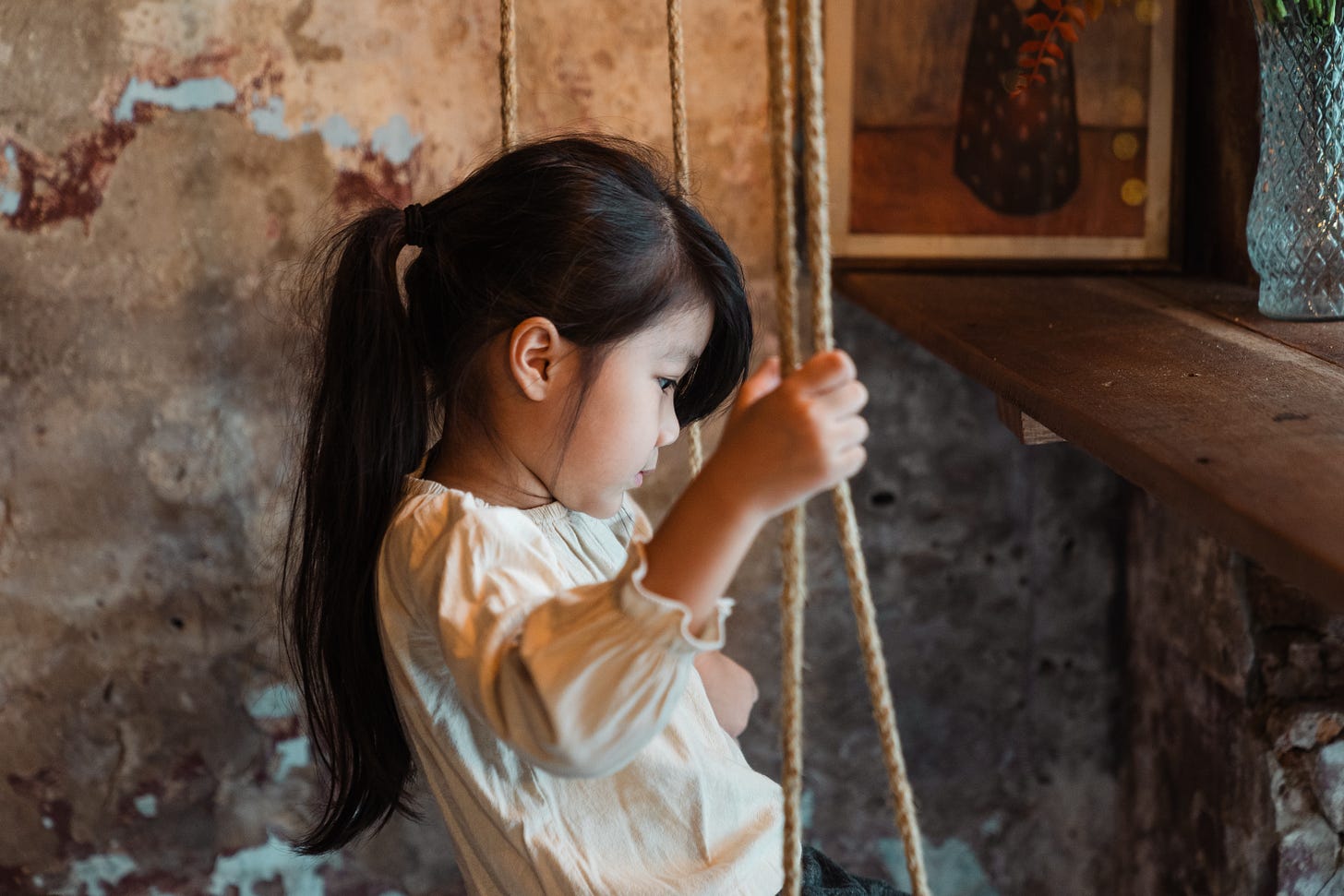The wounds of domestic abuse run deep. If you have children and you’re in a toxic relationship, even if they’re not being abused themselves, they’re likely still feeling the repercussions.
This isn’t meant as a recrimination or accusation—not at all! I only bring this up because I feel it’s crucial for all parents to be aware. The more aware we are, the more we can do to help and heal—not just ourselves, but others in our lives.
Back through the years I go wanderin' once again
Back to the seasons of my youth(Dolly Parton, “Coat of Many Colors”)
I was an inherently sad child. Deep down, within my core, there was a sorrow I couldn’t quite name, a wound so vague that the source was a mystery to me—yet the pain of sorrow was nearly always there. On one level, though, I knew my suffering had something to do with my mother.
I never formulated in my young mind that it was my mother’s sorrow I was empathetically carrying on my own shoulders. Even so, I did recognize her pain and was constantly trying to alleviate it. I would draw pictures or pick wild flowers for her, save my special bake sale money to buy treats for her instead of myself, and give her whatever other little gifts and hugs I could. And, above all, I just tried to be a good girl. I often felt I failed at that, which compounded my sorrow.
Because when I failed at being good, I was causing my mother even more unhappiness. Or so my little mind believed.
I also felt a deep, ingrained sorrow and guilt because no matter what I did, I couldn’t bring my mother lasting joy. Yes, she adored my gifts and my frequent displays of love. They brought her pleasure, and she treasured each and every one—but the joy was fleeting. She would smile and laugh as she played games with my siblings and I, and be genuinely happy as she read us stories, gave us enormous hugs, and tucked us into bed.
Yet beneath it all, there was sorrow.
And I felt it, keenly, even though I didn’t understand what I was feeling—or why my mother was so sad.




